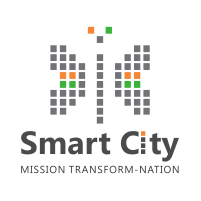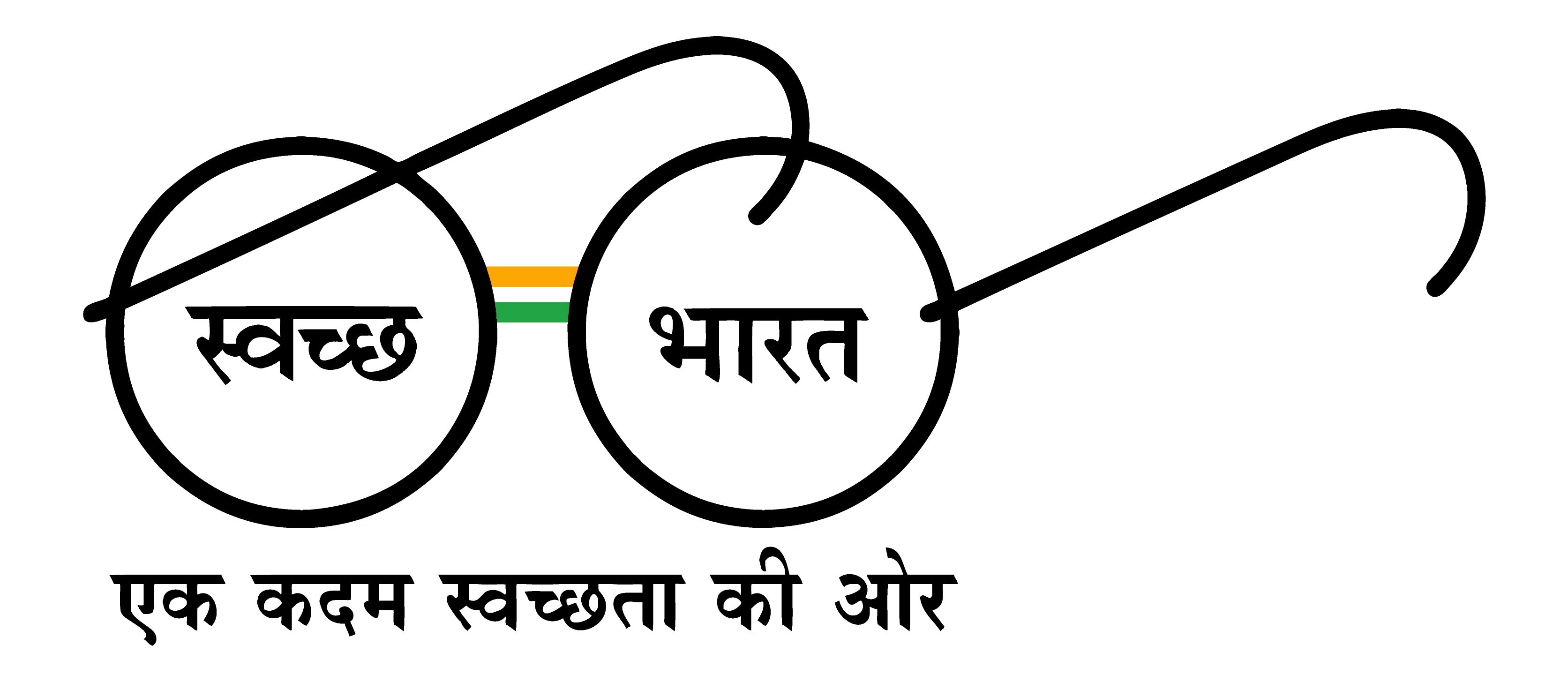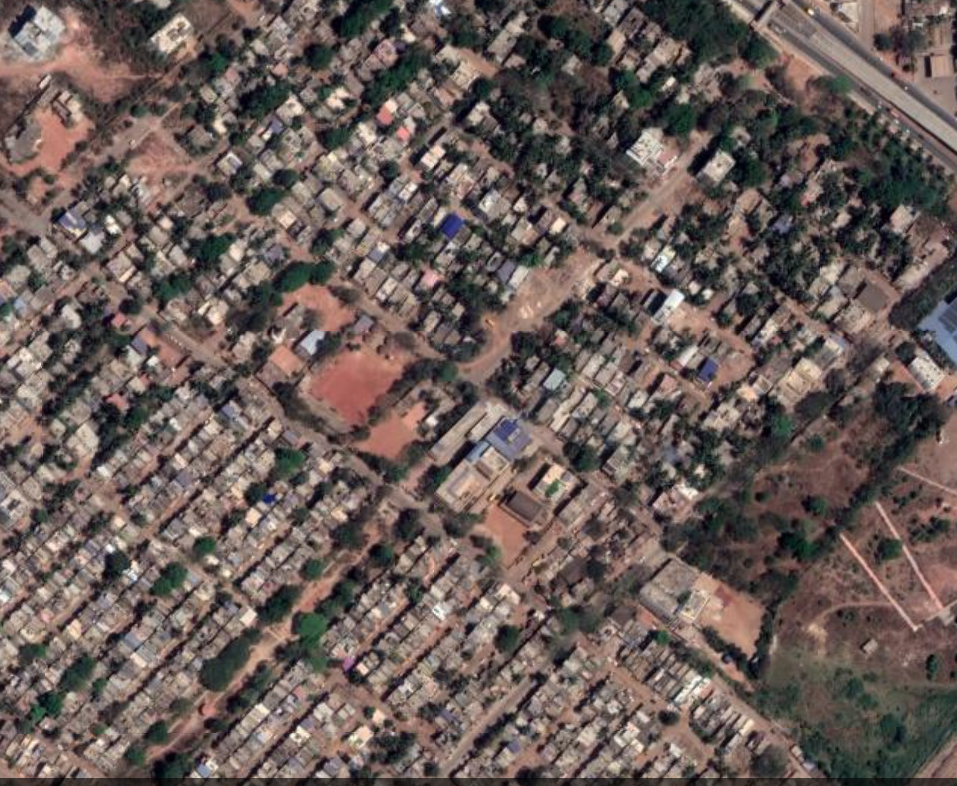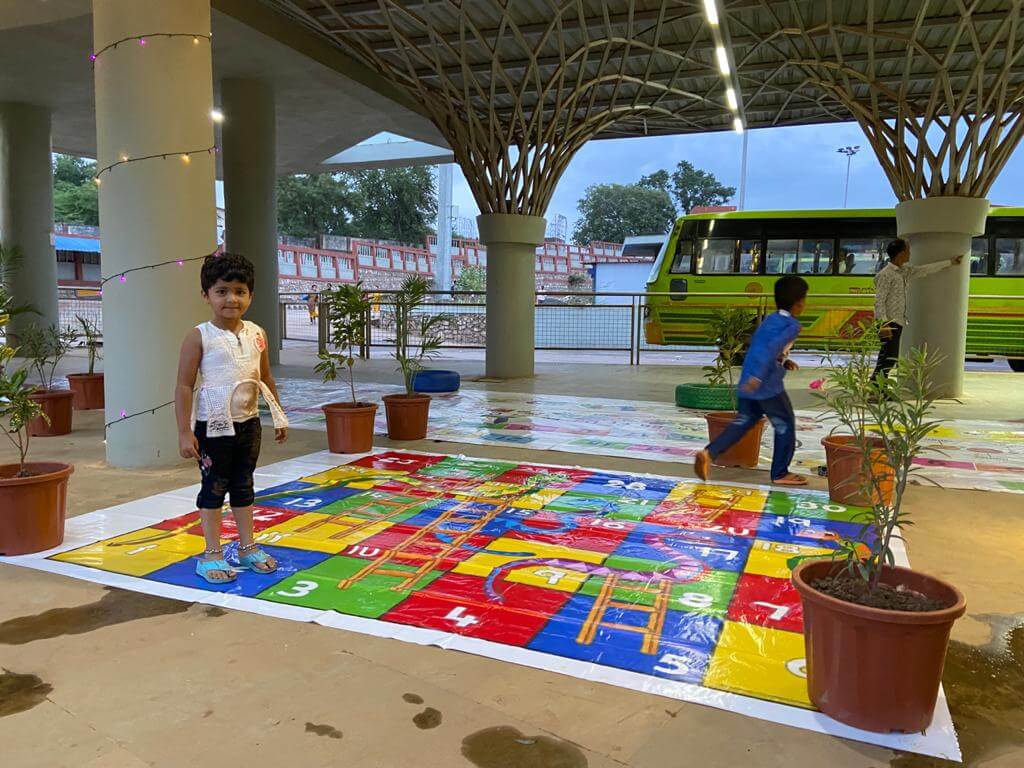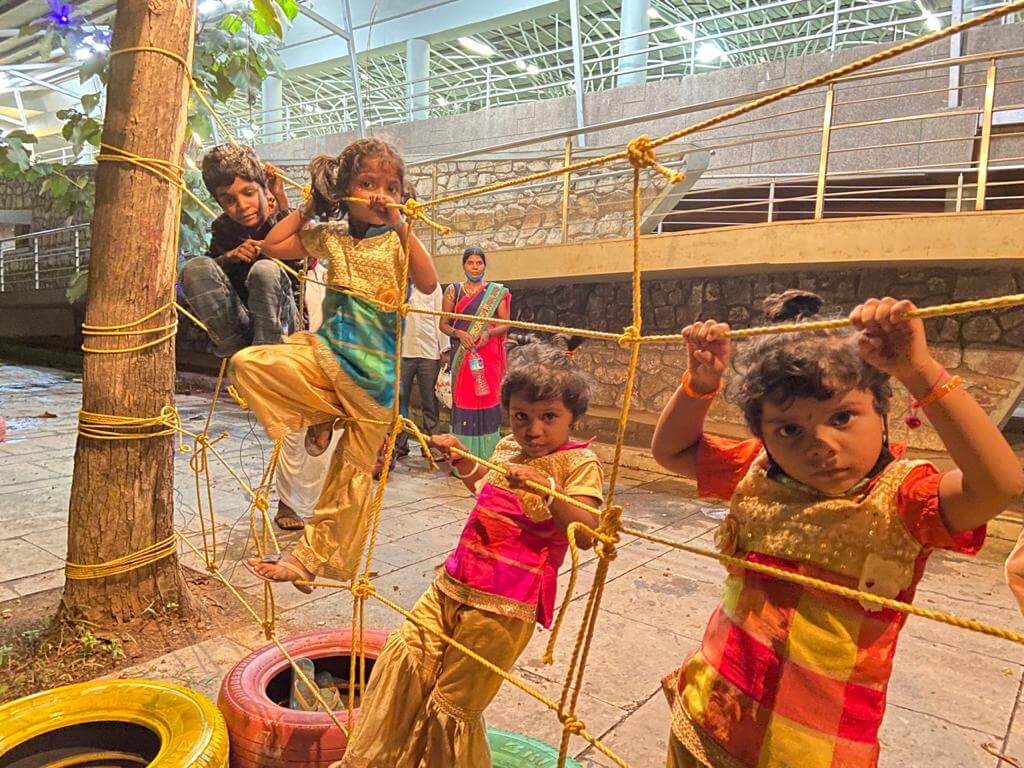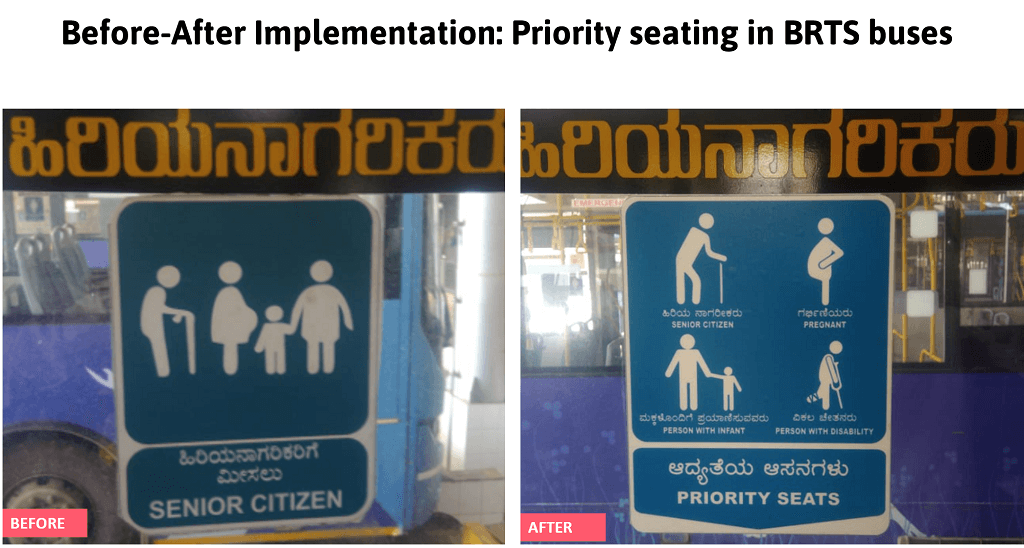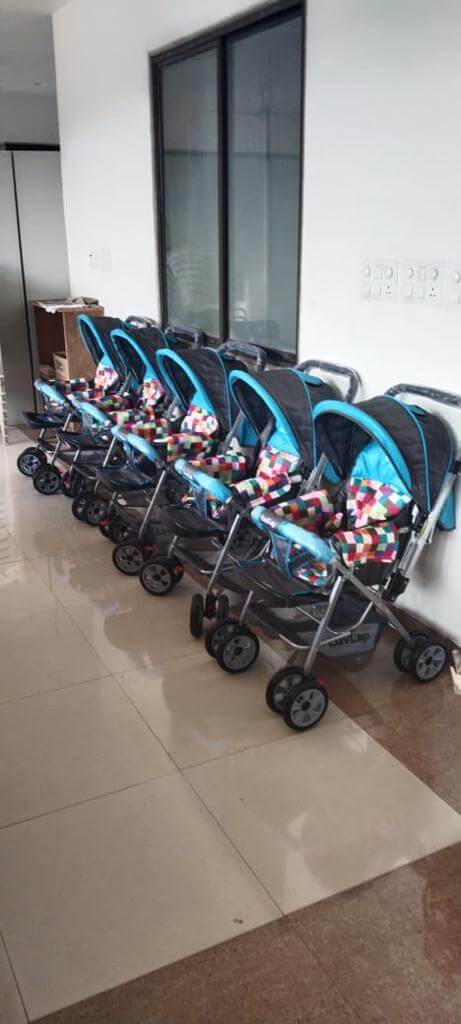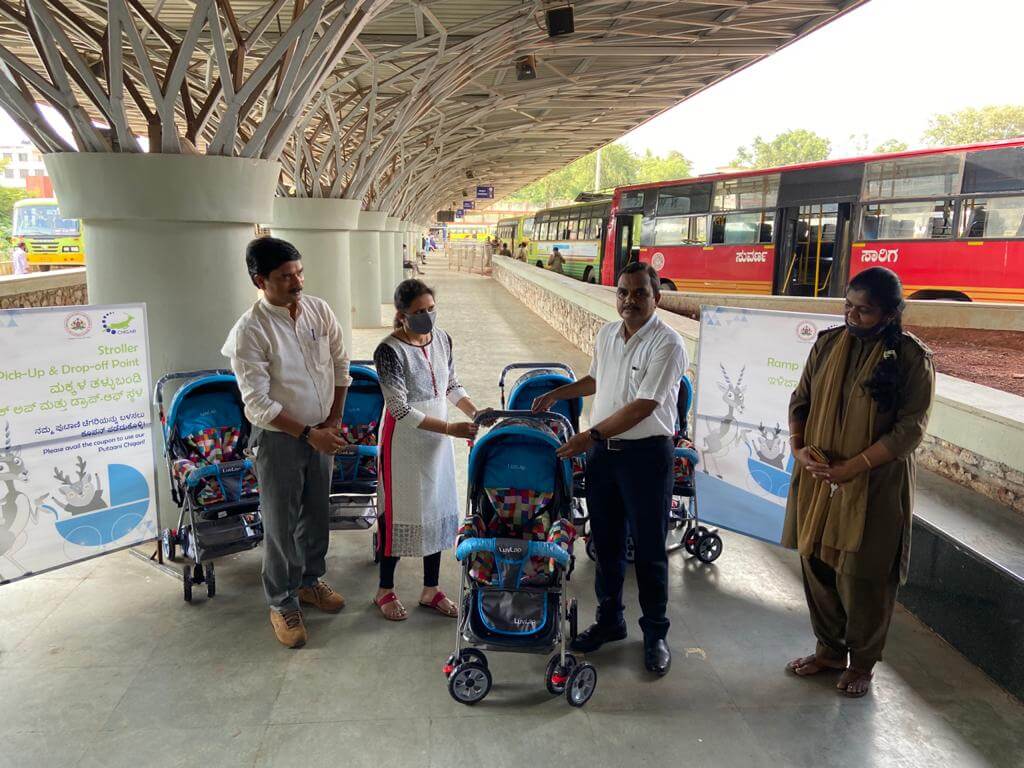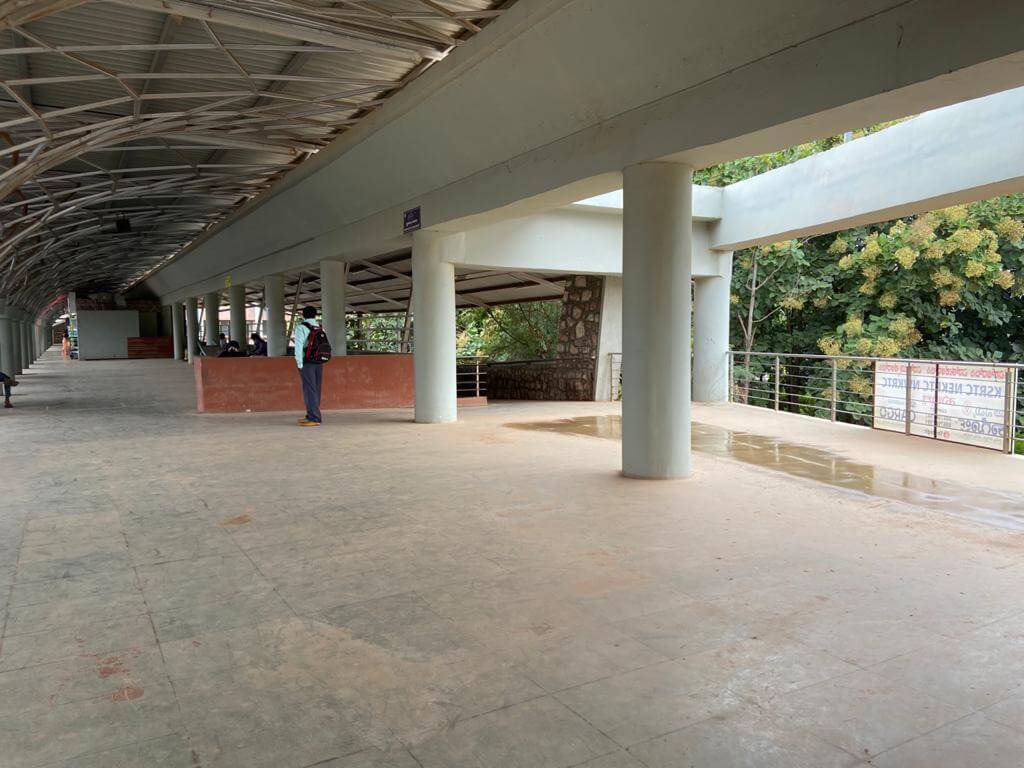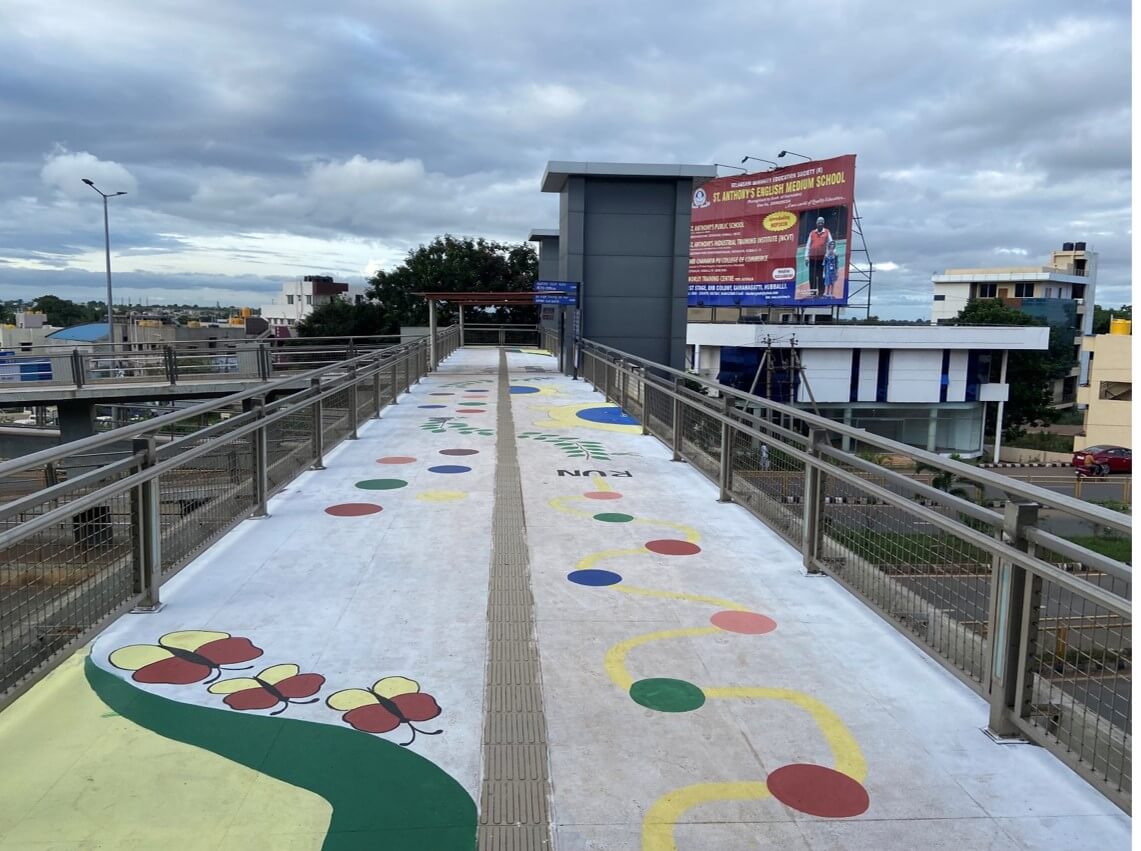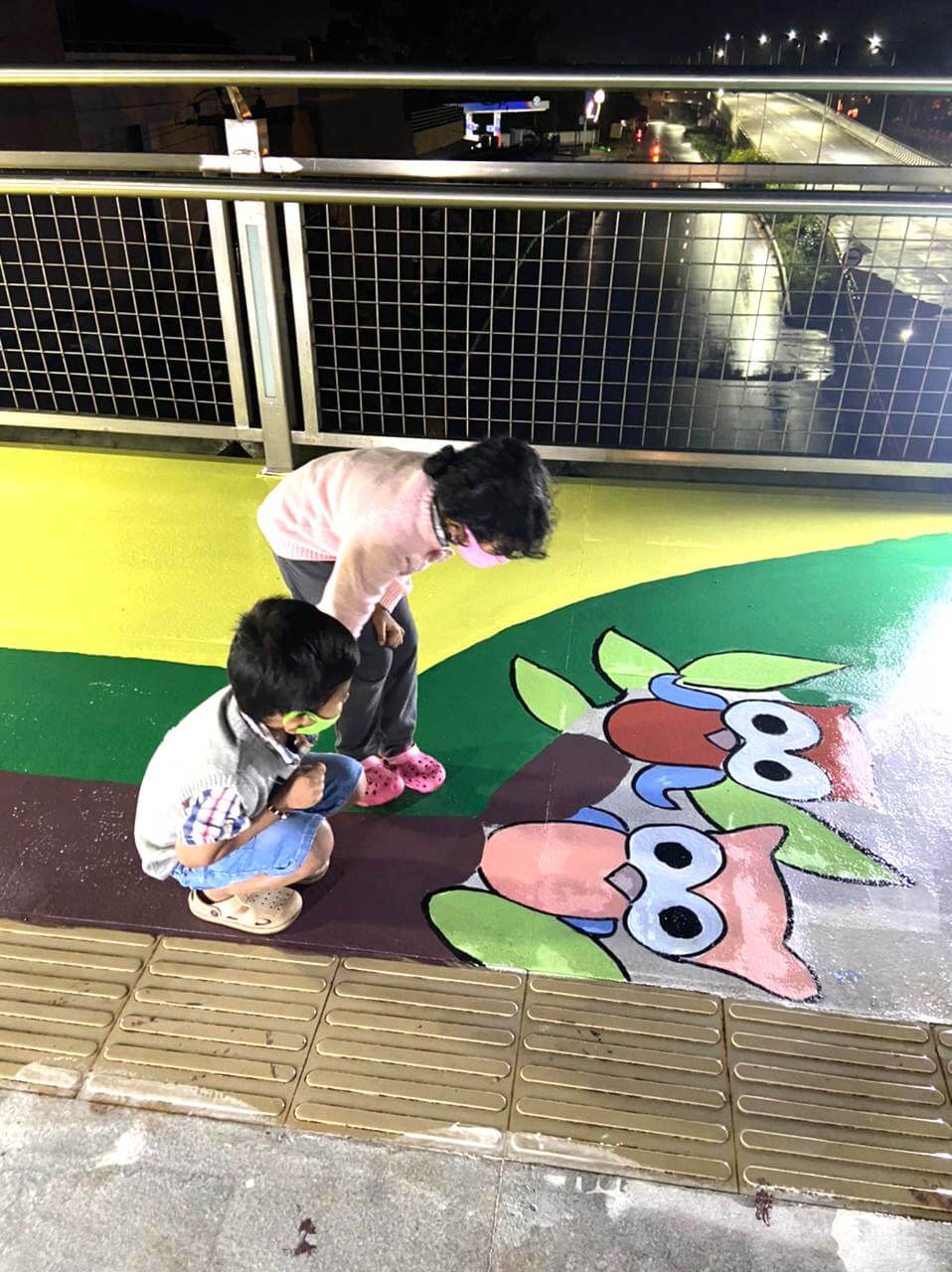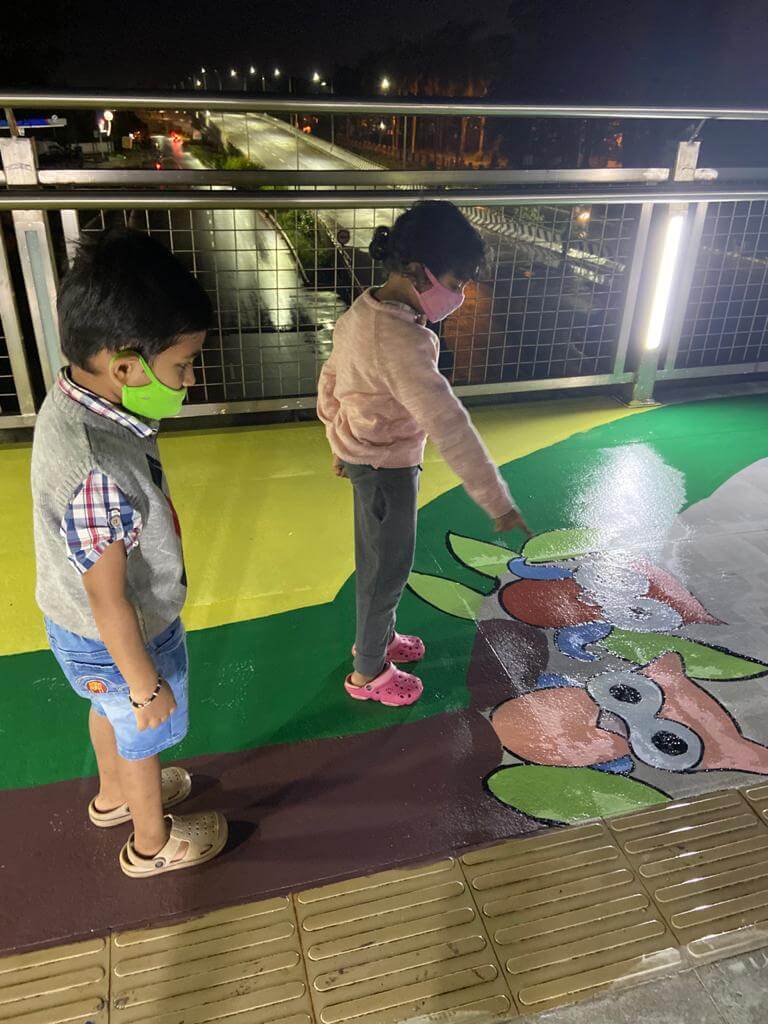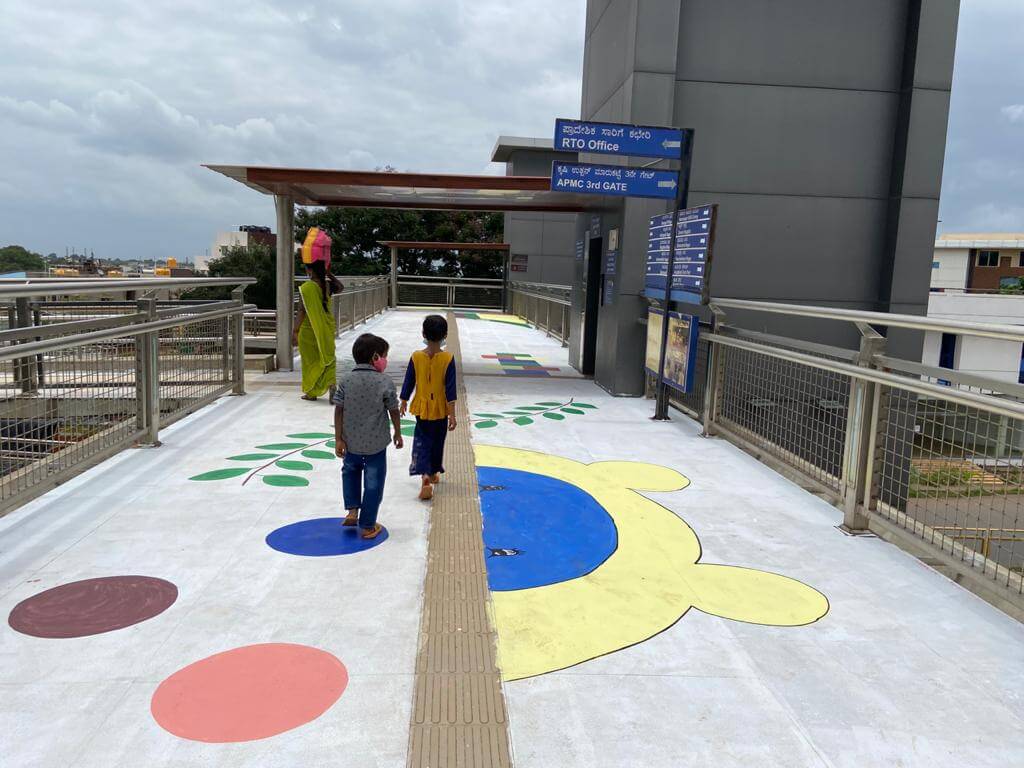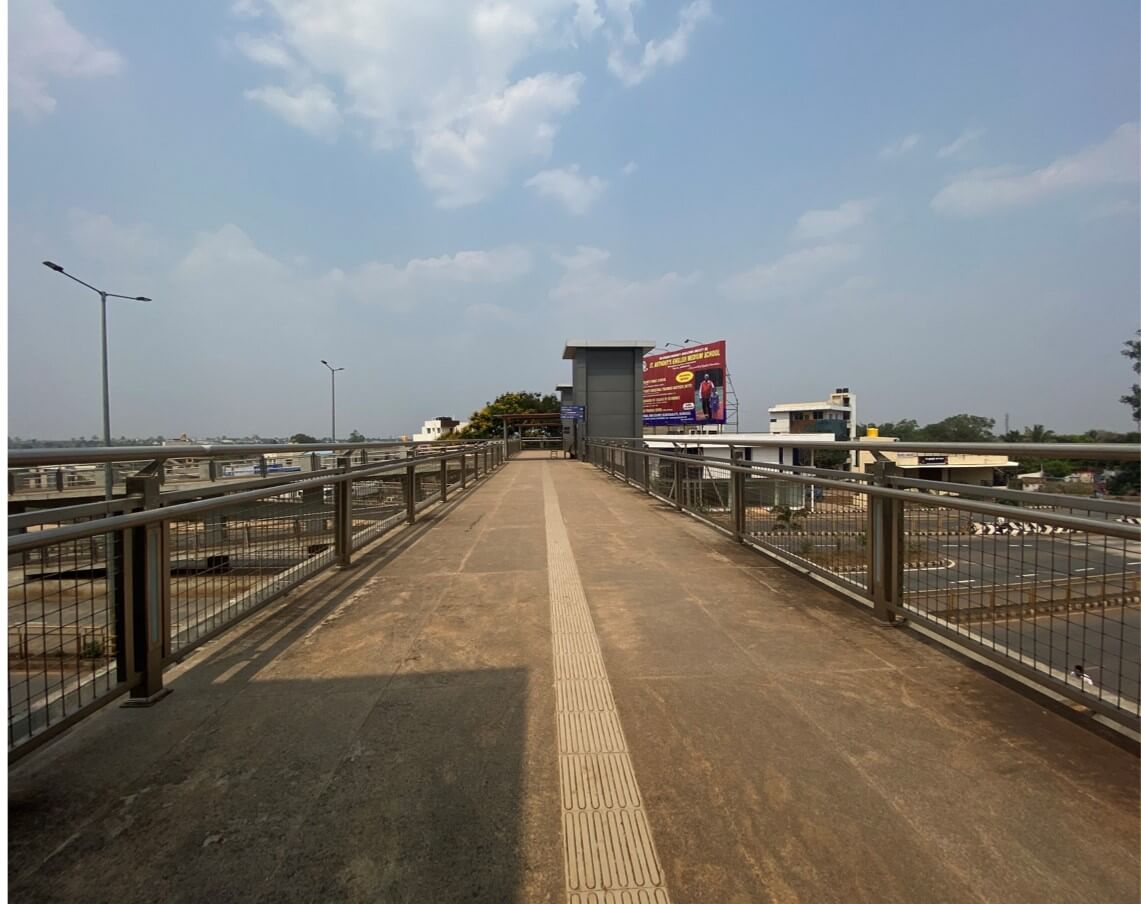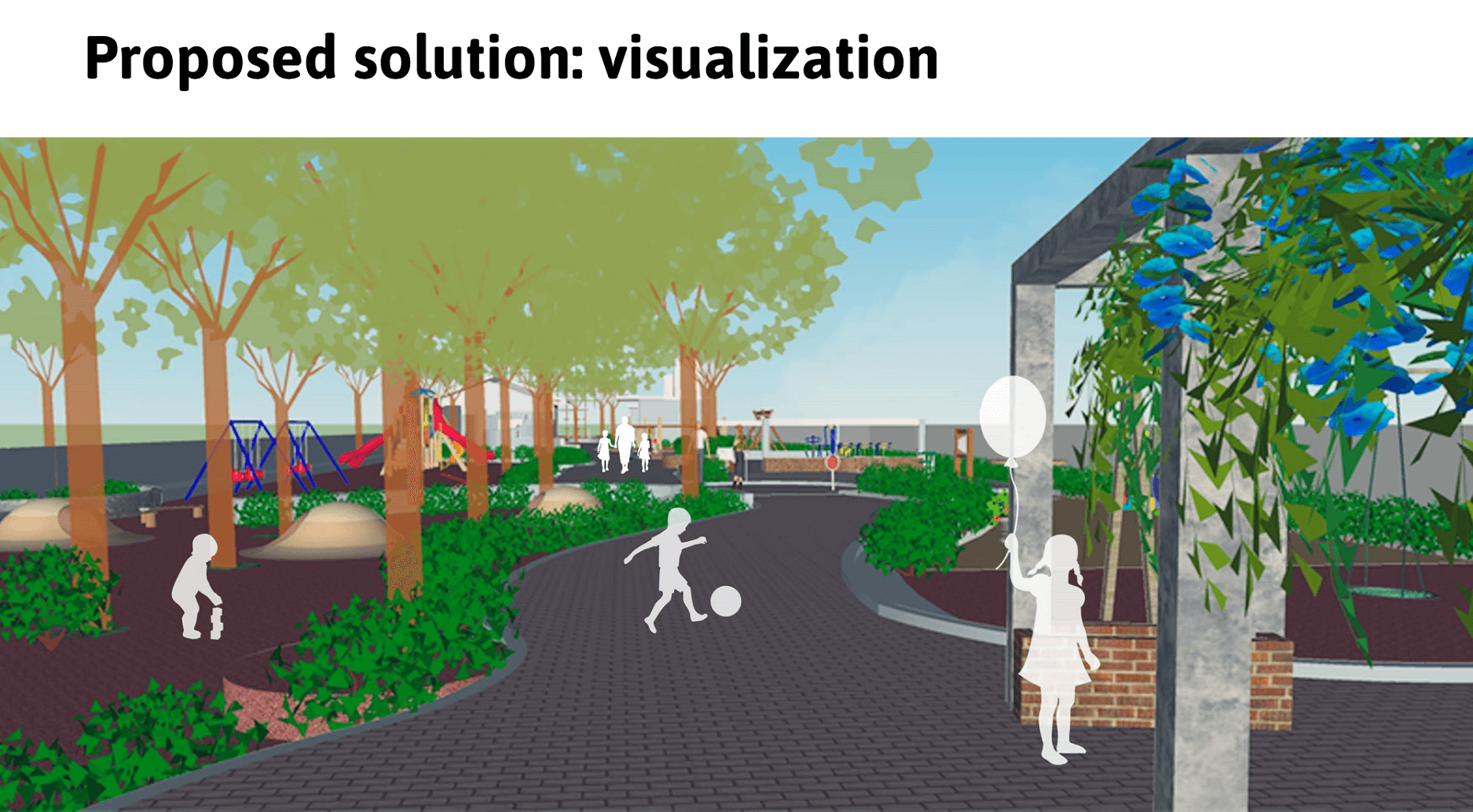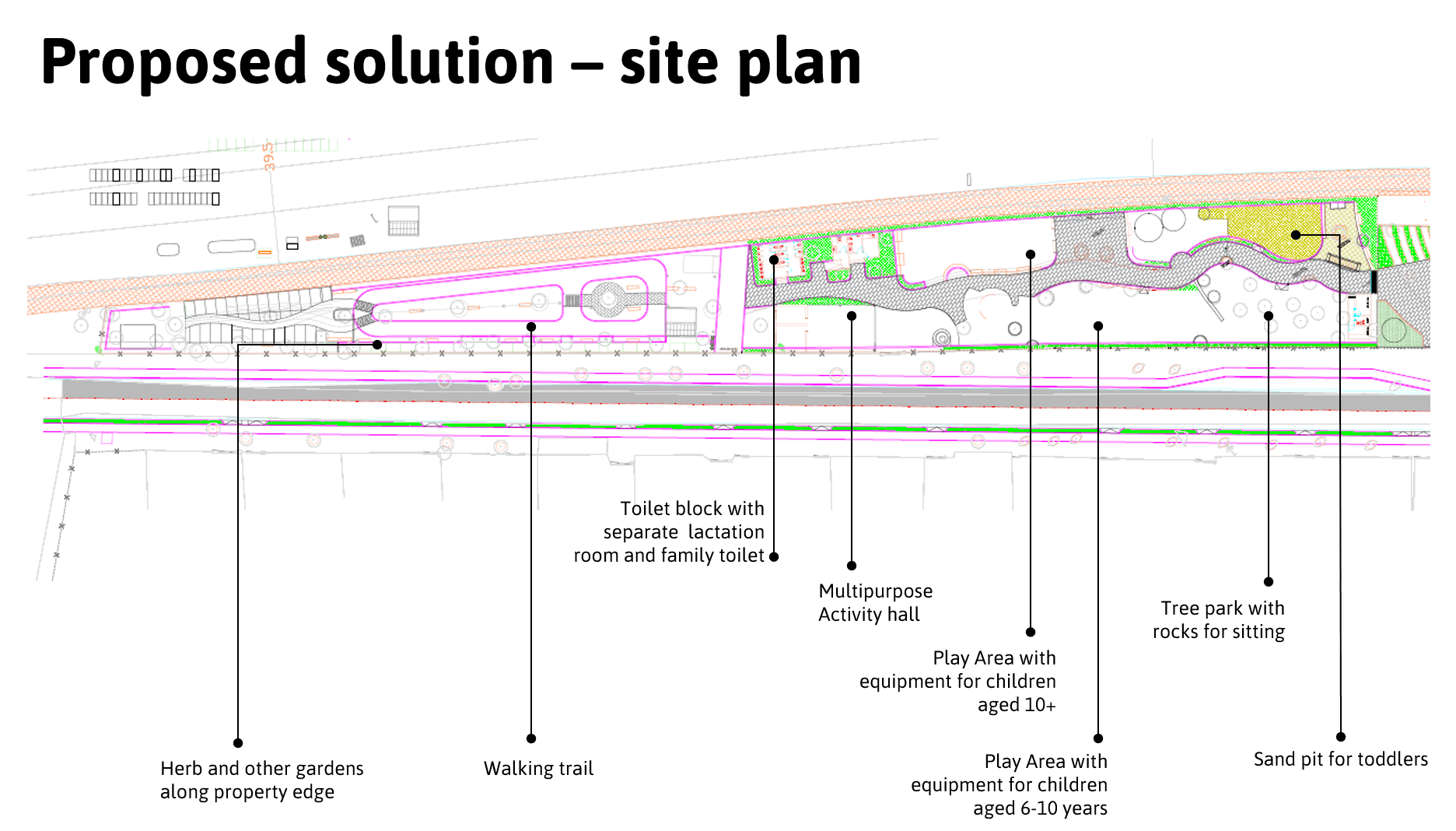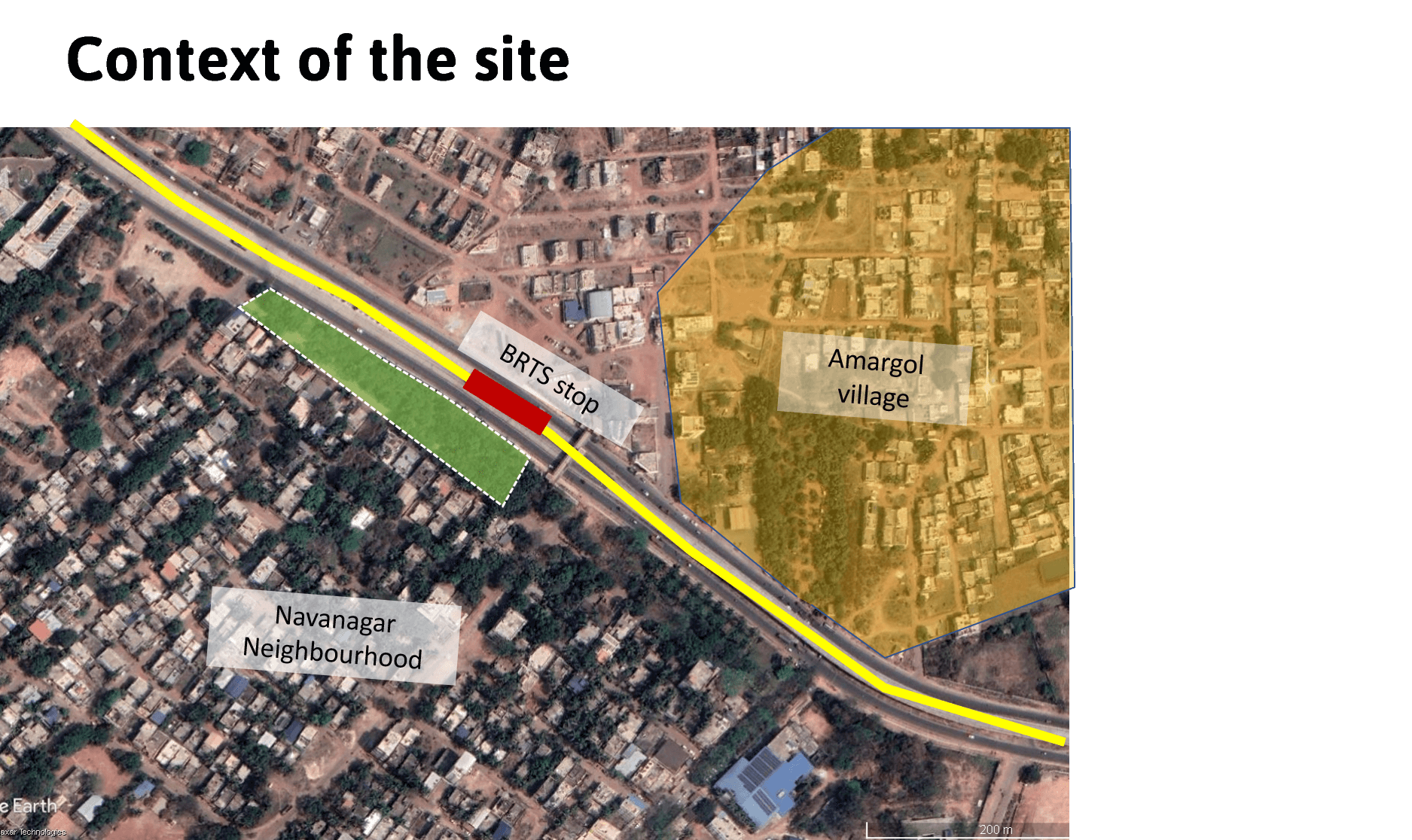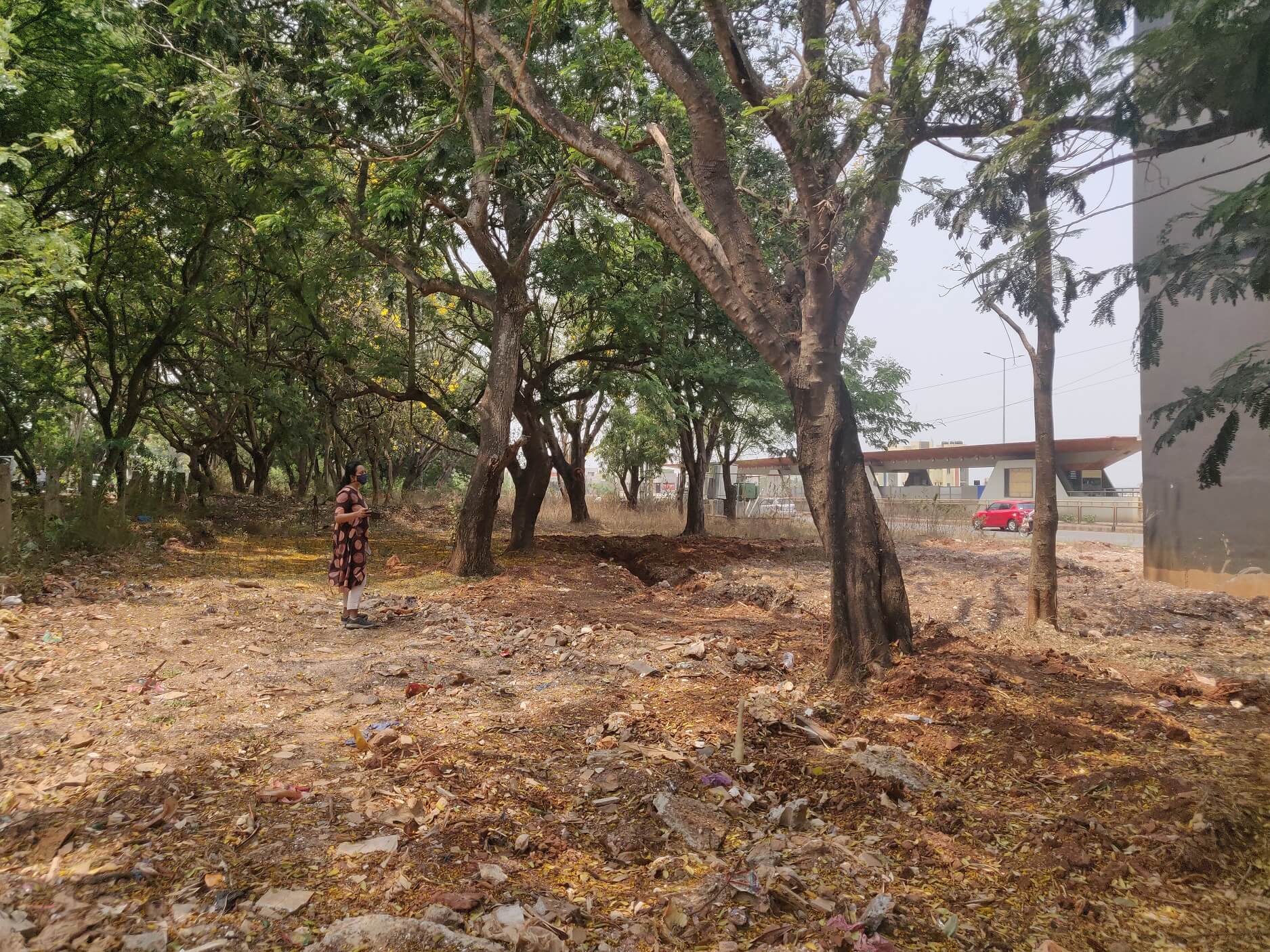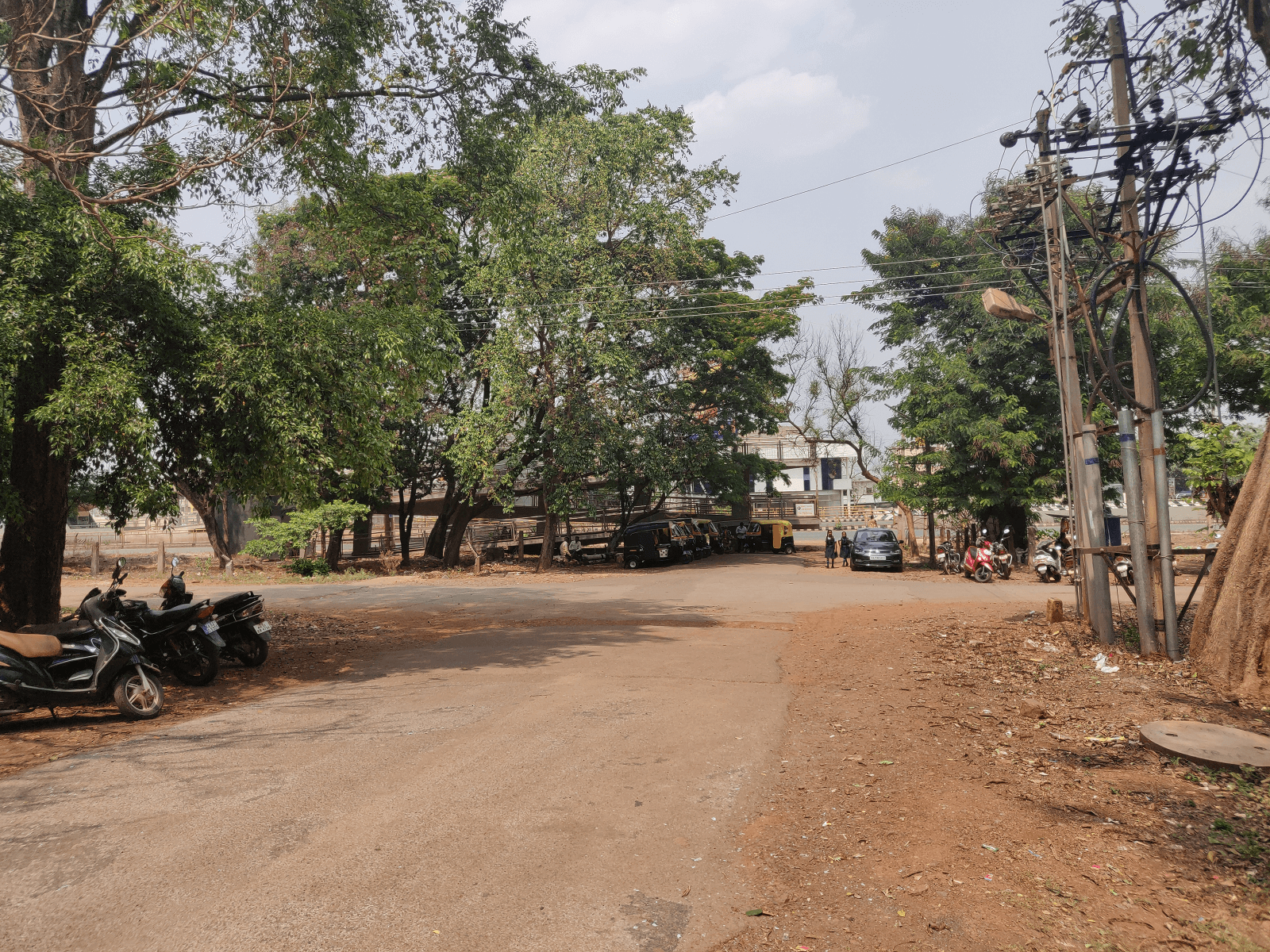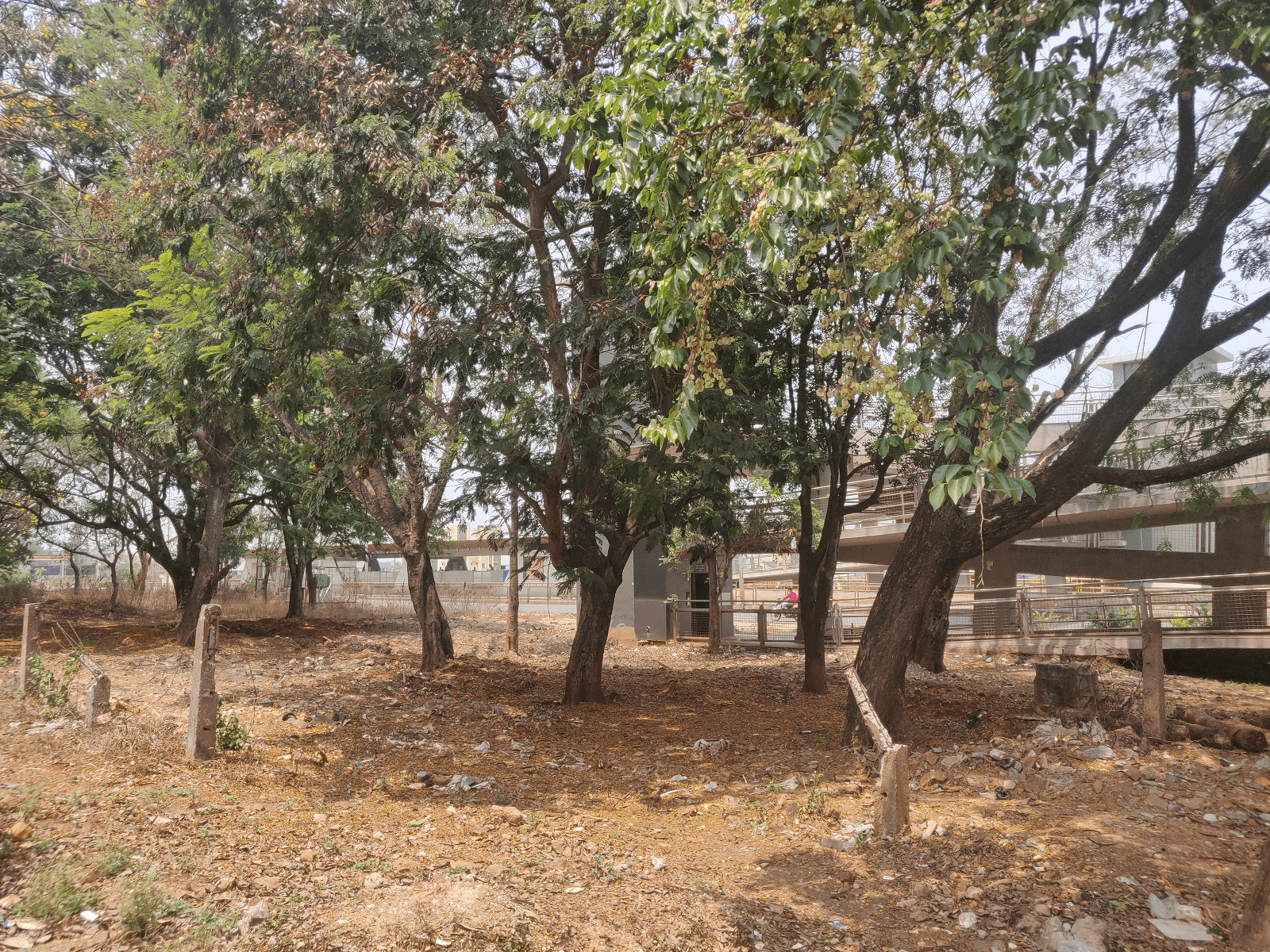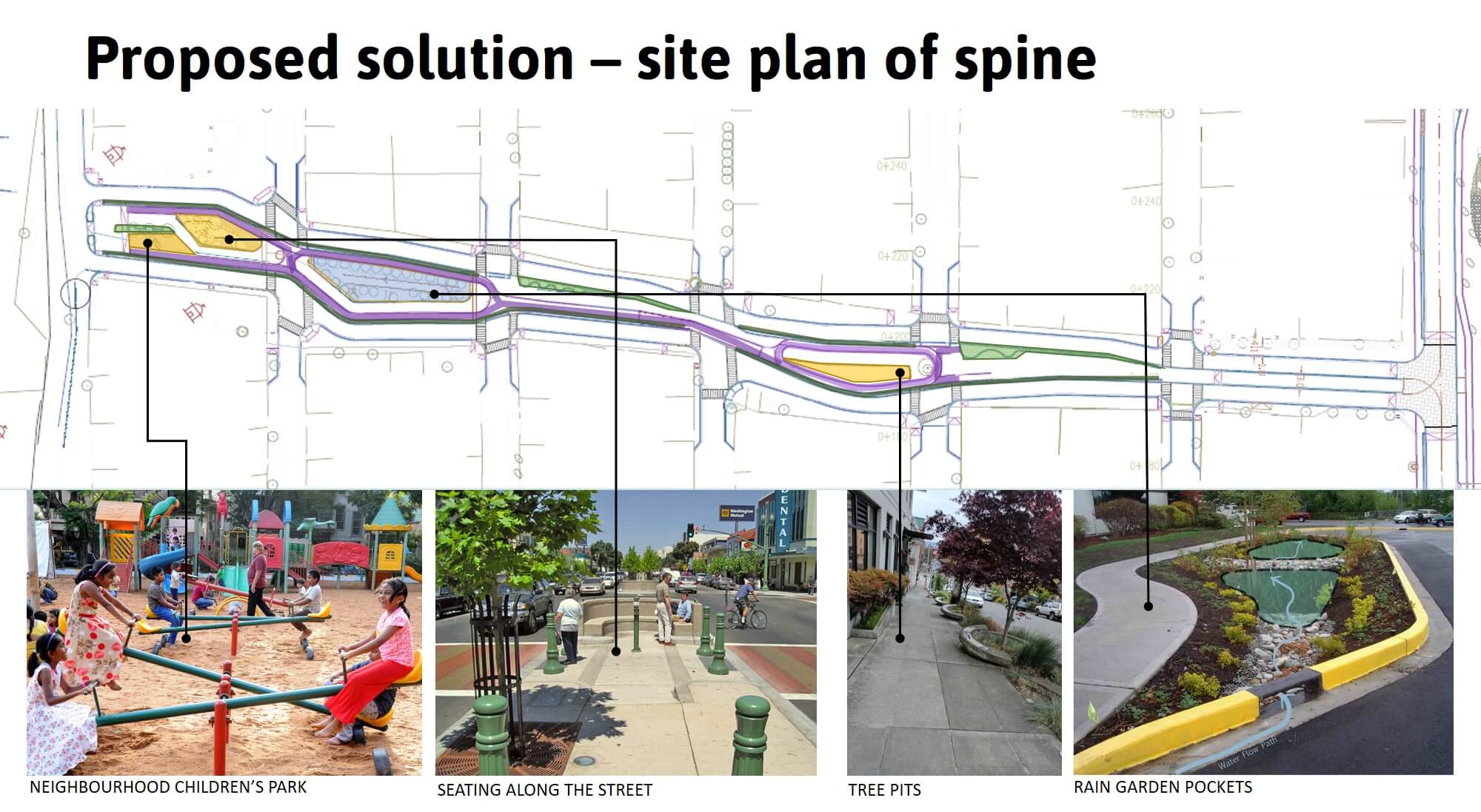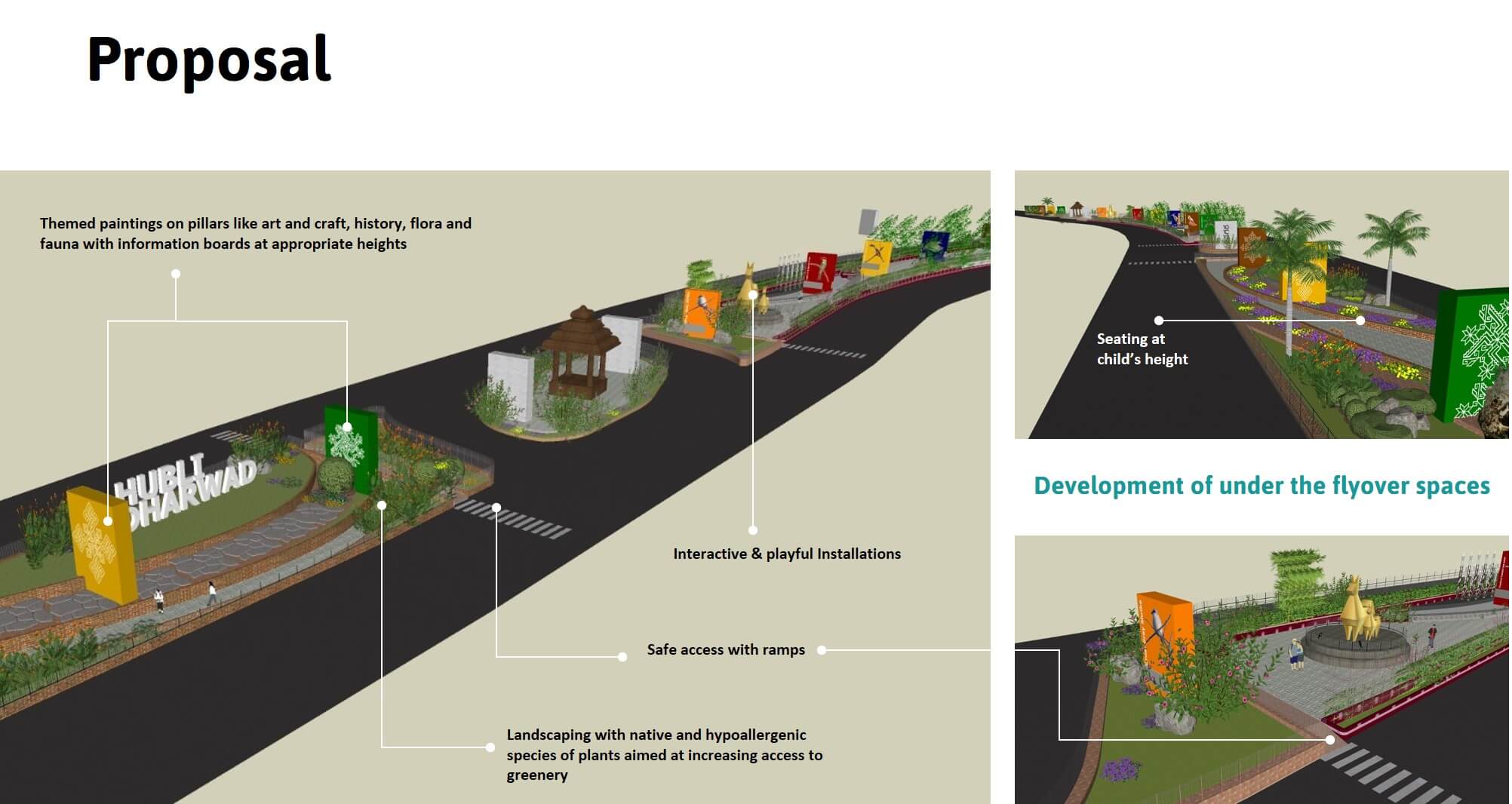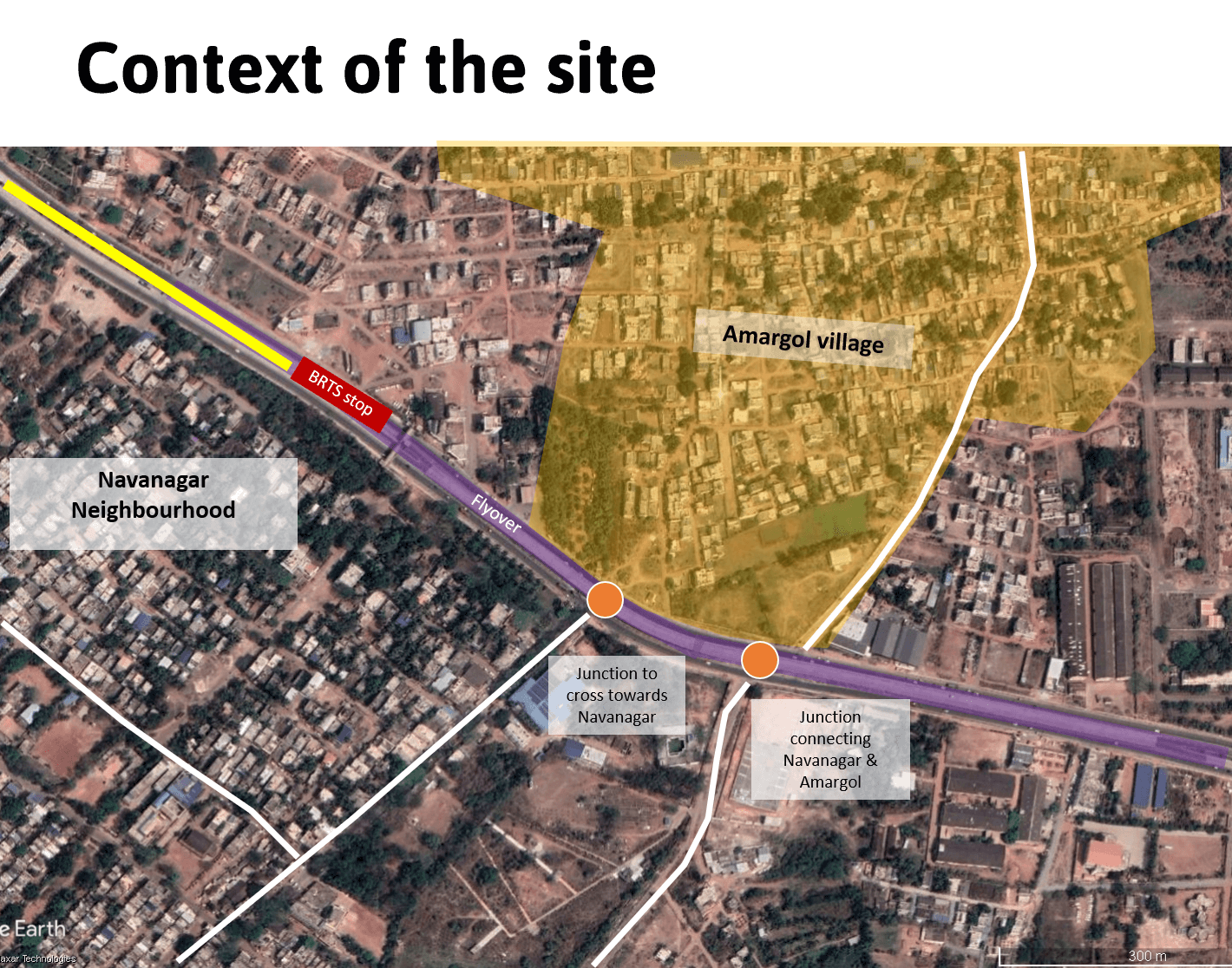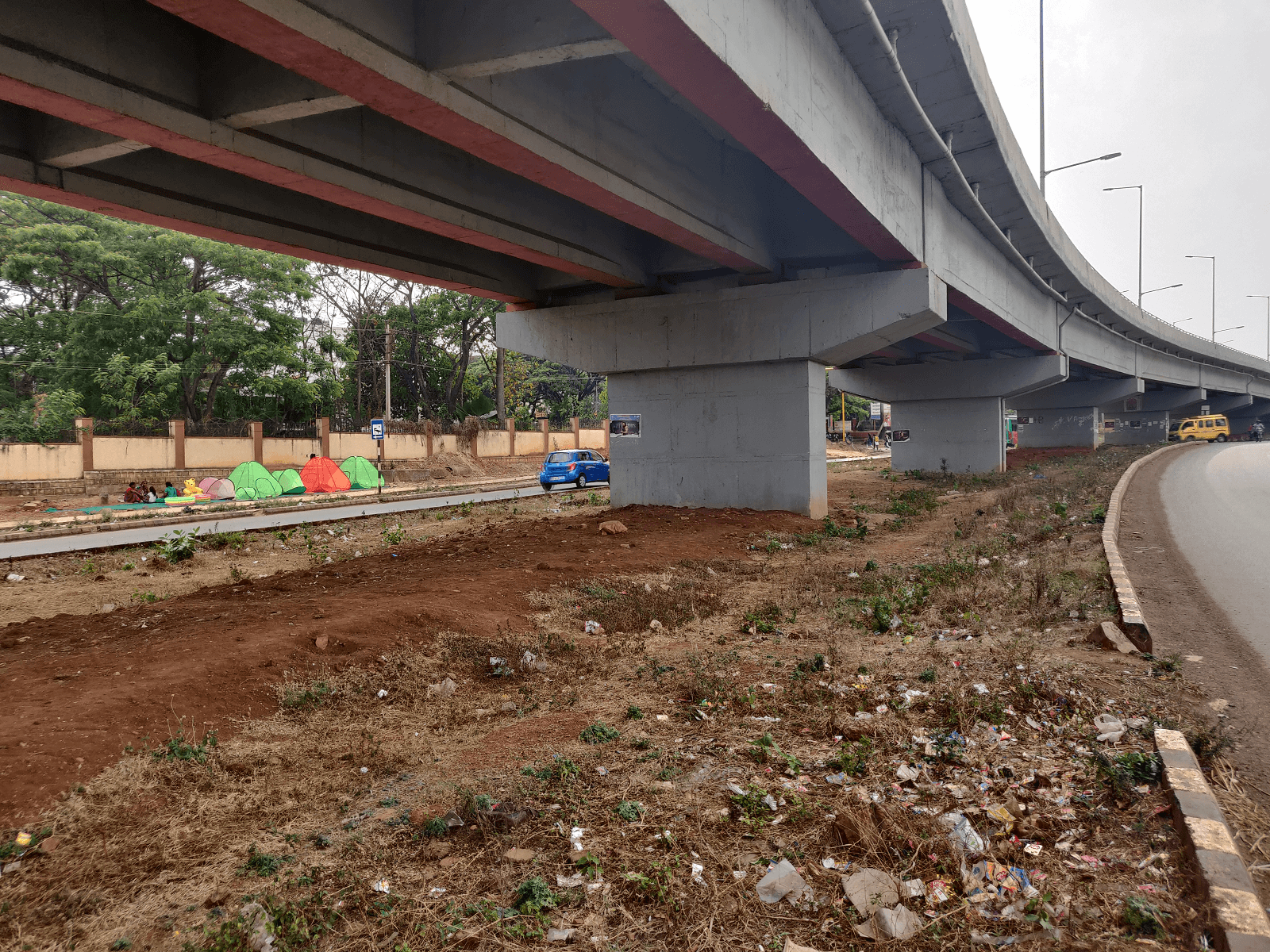About the City
Nodal Agency – Directorate of Urban Land Transport
City’s Vision
Hubballi-Dharwad aims to provide and develop safe access to supportive amenities for infants, toddlers, and caregivers, including safe and inclusive play spaces, in the city's Bus Rapid Transit system and Transit-Oriented Development zone.<>
The Navanagar neighbourhood presents varied opportunities for early childhood development initiatives as it falls into the transit oriented development zone of the city's BRT system. The neighbourbood is a dense residential area with high concentration of young children and caregiver population.
Hubballi-Dharwad Bus Rapid Transport System (BRTS) serves around 1 lakh commuters everyday. The agency introduced a shared pram system at Hosur interchange premises for better convenience of passengers with young children, while accessing buses at the terminal. Priority seating and queuing for young children, caregivers and pregnant women was also implemented in 100 BRTS buses. This has enhanced the daily convenience of caregivers travelling with their young children and reinforced the positive image of public transport.
BRT Stations (Bus Rapid Transit) are important everyday public spaces for the local community. The city experimented creating playful transit areas of around 300 sq.m. by introducing floor-based games and playful installations along the foot-over bridges, waiting spaces in the station area to make the space more welcoming for children. This has helped to reimagine the everyday utilitarian transit areas for around 50 young children and 200 school children users, into more humane public spaces
The central plaza is an interface to provide safe and easy transfer between Navanagar and the BRT station. This plaza is being developed as an ITC friendly space by setting up a nursing room, child friendly seating and playful elements. The neighbourhood spine provides direct access to the plaza and the BRT station through Footover bridge. Small pockets of activities like children’s play area, volleyball court and urban forests are proposed in between the spine at various locations.
The intervention aims for hassle-free movement for families with young children and also makes the users dignified in public spaces where they have access to good quality infrastructure for children and are encouraged to shift to public transport.
.png)
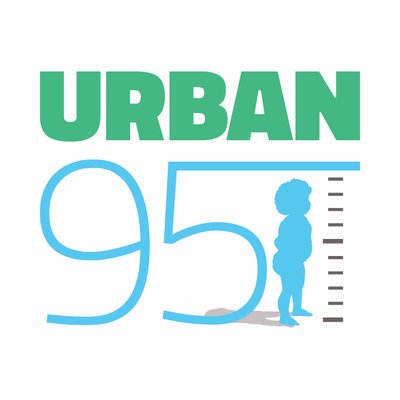
.png)
